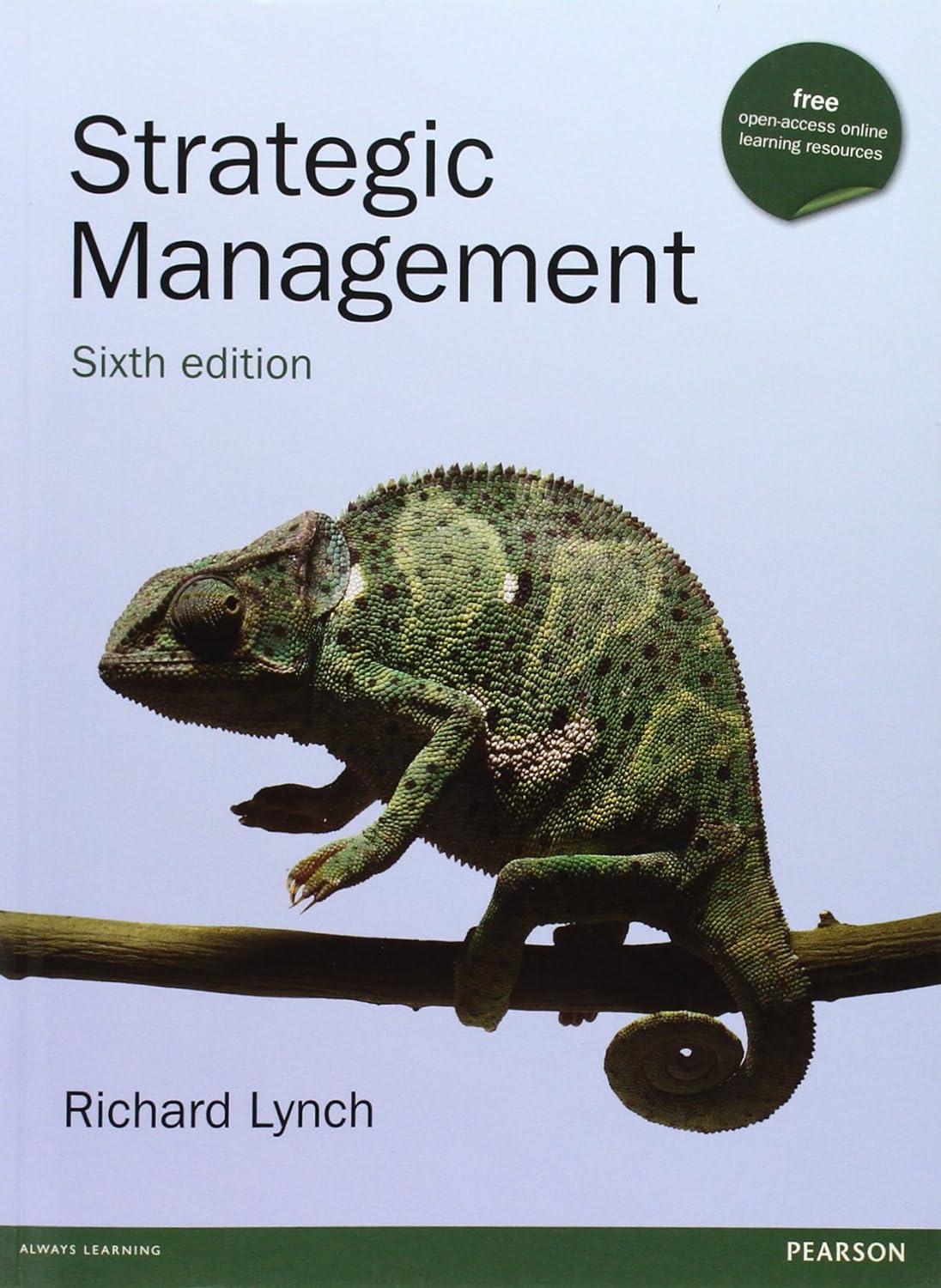Question
==================CASE STUDY================== Ethical choices in Banking? Synopsis: In 2010, Standard Chartered (StanChart) adopted a new slogan: Here for good. Now, just as Google had before,
==================CASE STUDY==================
Ethical choices in Banking?
Synopsis: In 2010, Standard Chartered (StanChart) adopted a new slogan: "Here for good." Now, just as Google had before, with its "Don't be evil" mantra, the bank is finding it hardto reconcile its values with its business in China. Like its larger rival HSBC,StanChart strugglestobalance its commercial dependence on China against its London headquarters and its reliance on US dollars. The internal debate is sharpening amid rising geopolitical tensions and increased pressure from investors on environmental, social and governance issues.
Recently, the board debated its approach togovernment relations where China and human rights featured prominently in both discussions, accordingtopeople familiar with the meetings. Attendees were reported as questioning whether, by continuing todo business with Chinese state firms accused of human rights violations in Xinjiang,StanChartwas living uptoits brand promise of "here for good".
Some board members expressed concern that this exposed the bank to reputational risk. However, greater China isStanChart's most important regional market, accounting for four-fifths of its 2020 profit.StanChart's strategy for now remainstotread lightly and avoid provoking the Chinese government. However, the bank is increasingly being forcedtopick sides.
In June 2020, when asked about Hong Kong, the bank crafted a statement that was "We believe the national security law can help maintain the long-term economic and social stability of Hong Kong", it said, adding that the "one country, two systems" principle should be maintained. This view was criticised internally and externally however. Hong Kong and mainland China are fundamentaltothe bank's business and the bank has stated it will comply with all relevant laws and regulations, and seektoengage constructively and be a force for good wherever possible. The bank has also faced recent difficulties about its ethical choices when conducting business in Saudi Arabia but have been anxious about relations with its main profit engine, China. Recent difficulties forced the bank to close all embassy accounts which was indicative of the challenges of running an international bank that straddles east and west during resurgent superpower tensions. It also reflects concerns about operating in an increasingly strict regulatory environment in whichStanChartis one of the main intermediaries between China, Africa and the Middle East, and international capital markets.
The bank's view of the decision to close embassy accounts was difficult and would create problems but a view was taken that this was better than becoming involved in potential political problems that accompany embassy operations. It was reported as a business decision, not a political one.
For some, this decision waspart of a trend that began a decade ago, when many international lenders including JPMorgan closed the accounts of foreign government officials because of the opacity of embassy and diplomatic money flows and the embassies' reticencetoprovide detailed information.
Senior figures within the bank have also responded that criticism against them ignores the recent history of autocratic British colonialism in Hong Kong. It also overlooks other industries' close ties with authoritarian regimes in Asia and the Middle East, including asset management and the political establishment itself. This is a complex reality for many organisations.
REQUIRED:
Discuss the following in the light of the Case study mentioned above
- Post-modern view of the power
- Cognitive dissonance Decision Making
- Consequentialist Decision Making (CDM) (This is sometimes called utilitarianism).
- Deontological decision-making (DDM)
- Virtue decision-making (VDM)
- Analytic Hierarchy Process (AHP)
Note: Take your time and give a detailed, correct, comprehensive answer.
Step by Step Solution
There are 3 Steps involved in it
Step: 1

Get Instant Access to Expert-Tailored Solutions
See step-by-step solutions with expert insights and AI powered tools for academic success
Step: 2

Step: 3

Ace Your Homework with AI
Get the answers you need in no time with our AI-driven, step-by-step assistance
Get Started


